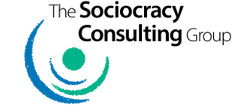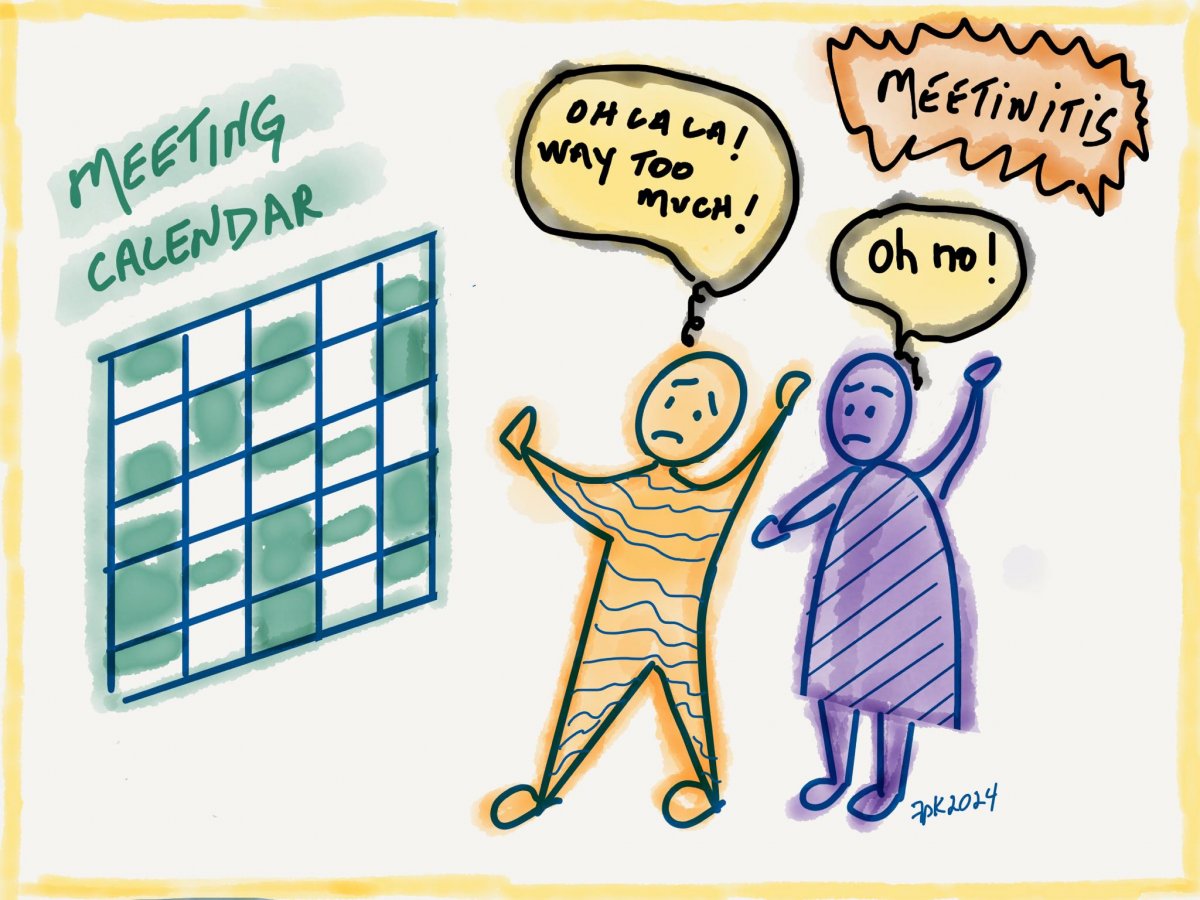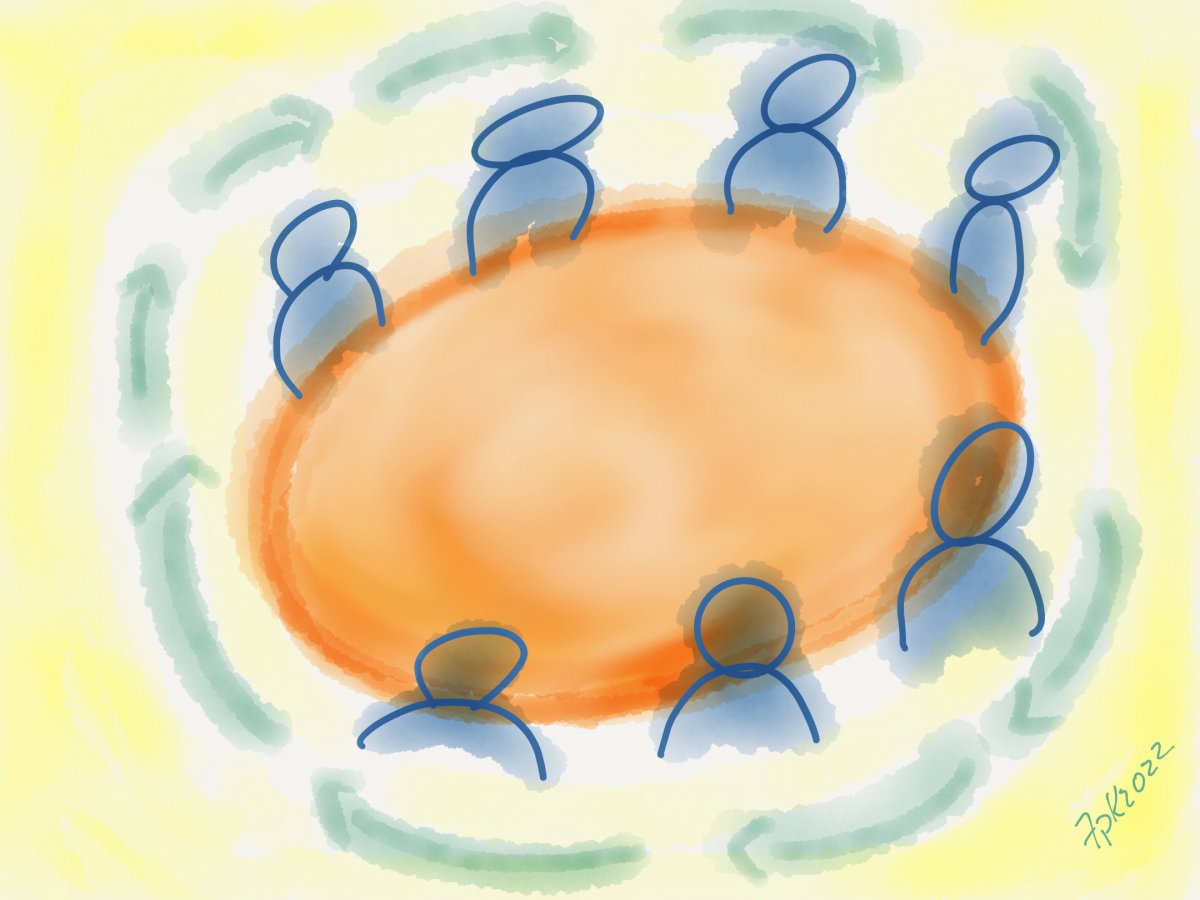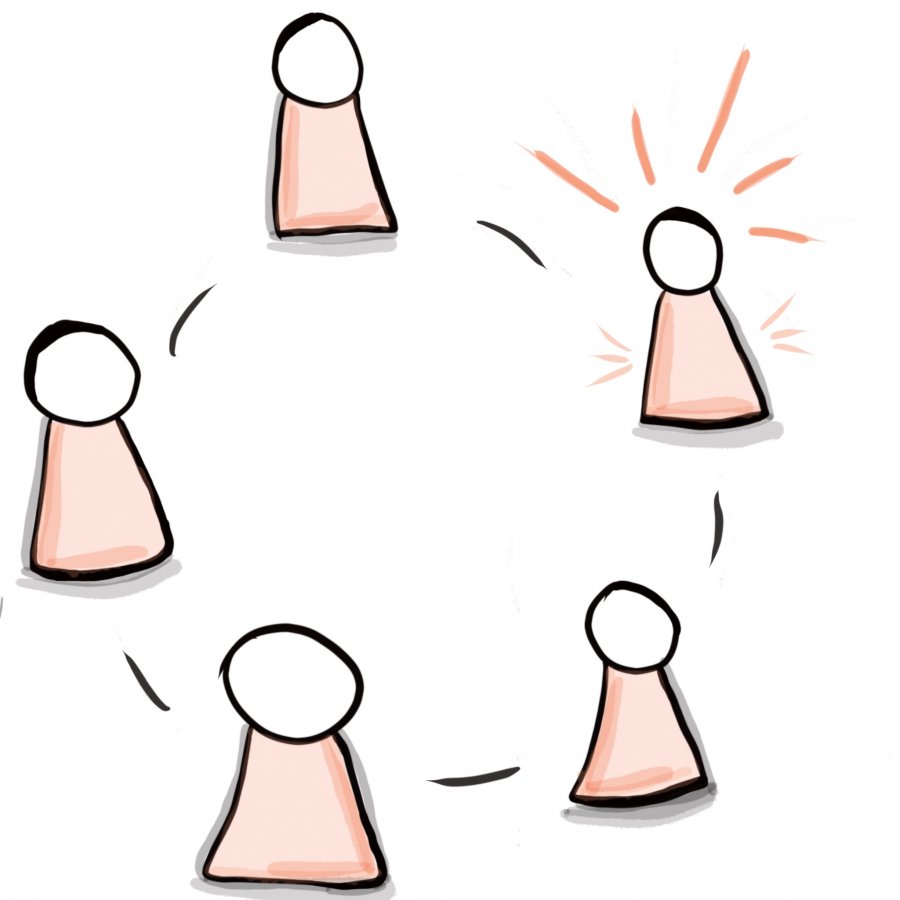Recently I was in the role of meeting facilitator, something I hadn’t done for 1.5 years since prior to maternity leave. The group was new to me. The preparation time was narrow, based on a last-minute recruitment of my services. And the task was to hold a complex conversation amidst tricky group dynamics with ‘collaborative…Continue reading
Objections Wanted!
Why we ask for objections to determine consent Confusing the means with the end The Sociocratic Circle-organization Method (SCM) defines consent as the absence of objections. Crucially, it also makes clear that objections are welcome and encouraged, because they provide valuable feedback regarding the proposal under consideration. Raising relevant objections is a beneficial behavior –…Continue reading
Overcoming “Meetinitis” with the Sociocratic Circle-organization Method
Alan Barker, in his book How to Manage Meetings, used the word “meetinitis” to describe “…the recurrent process in which individuals or companies called for continuous meetings without effective results.” Sound familiar? If ignored, meetinitis will impact your whole organization, resulting in decision bottlenecks, employee disengagement, and reduced productivity. In fact, meetinitis is capable of…Continue reading
What We Forget About Hierarchy
Unpacking Hierarchy What is a hierarchy? If our first thought is “an organizational structure that gives some people power over others,” we’re only partly right. The word “hierarchy” has become, in some human organizational contexts, a pejorative term that focuses exclusively on “power-over” types of hierarchies. And, this is only part of the meaning of…Continue reading
Comparing Sociocracy and Holacracy
People sometimes ask me what the difference is between sociocracy and Holacracy. I set out to create a table summarizing the answer to that question. My direct knowledge and experience are solely with sociocracy. What I know about Holacracy is from reading and from talking with Holacracy coaches and people who are in organizations using…Continue reading
How Can Leaders Get Around Blind Spots?
What if you could use a decision process that makes your organization smarter than any individual leader or leadership team? Leaders often ask for honest feedback to help them make better decisions. This feedback could be from people at any level of the organizational hierarchy. But what if the organizational culture discourages people from speaking…Continue reading
Regarding Objections
A common question we hear as people are learning consent decision-making goes something like this: “If we determine that an objection lacks sufficient reason, can we disregard it or not integrate into the proposal?” In other words – can we classify some objections as simply not worthy of attention? Without actually exploring their connection with…Continue reading
Speaking in Rounds to Help People Think – Part II
“When someone deeply listens to you, your bare feet are on the earth and a beloved land that seemed distant is now at home within you.” –John Fox in Poetic Medicine: The Healing Art of Poem-making If you prefer listening to reading, this blog is based on a podcast interview by the same name. In…Continue reading
Speaking in Rounds to Help People Think – Part I
“Everything we do depends for its quality on the thinking we do first. Our thinking depends on the quality of our attention for each other.” –Nancy Kline, Time to Think: Listening to Ignite the Human Mind If you prefer listening to reading, this blog is based on a podcast interview by the same name. Have…Continue reading
Zen and Sociocracy
The Zen school of Buddhism has a long history, and a great variety of disciplines and lineages. This post explores a few similarities between the wisdoms of Zen and sociocracy, based primarily on contemporary lineages of “engaged Buddhism.” Not Knowing Fundamental to most forms of Zen Buddhism is a commitment to penetrating the unknown –…Continue reading










